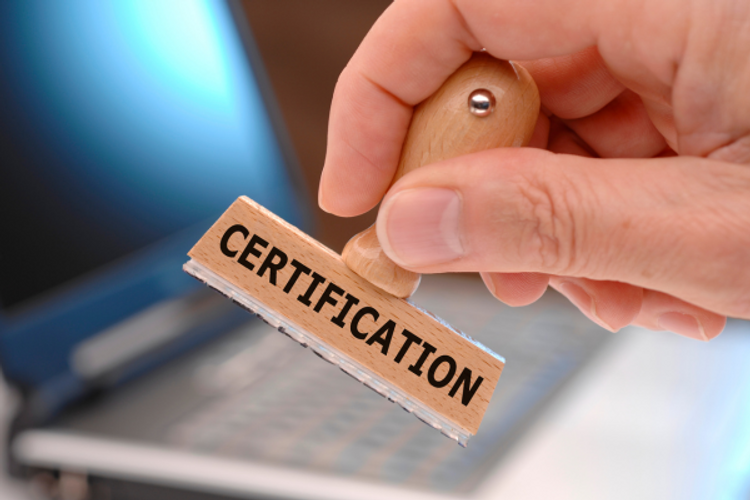Unlocking Transparency: The Vital Role of Certificate of Analysis in Herbal Product Safety
Apr 25th 2024
Why Is A Certificate of Analysis A Valuable Tool When Purchasing Herbs and Teas?
Why do we offer a certificate of analysis on all our herbs? One reason and one reason only, is to ensure the quality of the product which is being purchased.
A Certificate of Analysis (CoA) is a detailed document that outlines the composition, quality, and purity of a product in the herbal industry, CoAs are crucial as they confirm the authenticity* and safety of herbal products like botanical extracts, supplements, and medicines.
*Authenticity is defined as:
When discussing herbs, authenticity refers to the genuineness, purity, and quality of the herb in question. It encompasses several aspects.
Botanical Identity: Authenticity ensures that the herb is accurately identified according to its botanical classification. This means that the herb is indeed what it claims to be, with no substitutions or adulterations.
Growing Conditions: Authentic herbs are cultivated or harvested under conditions that are optimal for their growth and development. This includes factors such as climate, soil quality, and cultivation practices, which can influence the herb's flavor, aroma, and medicinal properties.
Processing and Handling: Authenticity also relates to the methods used for processing and handling the herbs. This includes harvesting, drying, storage, and packaging practices that maintain the herb's integrity and prevent contamination or degradation.
Chemical Composition: Authentic herbs possess the characteristic chemical constituents that contribute to their flavor, aroma, and therapeutic properties. These constituents may include essential oils, antioxidants, vitamins, and other bioactive compounds that are unique to each herb.
Geographical Origin: Some herbs have specific geographical regions where they are traditionally grown or harvested, and authenticity may involve verifying that the herb originates from these regions known for producing high-quality specimens.
In summary, authenticity in herbs ensures that they are genuine, unadulterated, and of high quality, preserving their inherent properties and benefits for culinary, medicinal, or other
Why is this important?
Well, there's been a rise in demand for herbal products lately. People are turning to natural and holistic approaches for health and wellness, concerned about synthetic drug side effects, and looking for eco-friendly options. Herbal products are seen as gentler alternatives to conventional medicines.
Ensuring the quality of herbal products is essential for several reasons:
Safety: Subpar or contaminated herbal products can pose health risks due to heavy metals, pesticides, or pathogens.
Efficacy: Quality control maintains consistent levels of active compounds, ensuring the products work effectively.
Regulatory Compliance: Adhering to regulations protects both consumers and manufacturers from legal repercussions.
Health Risks: Contaminated products can cause allergic reactions, toxicity, and infections, especially for vulnerable groups.
Loss of Trust: Incidents with poor-quality products can damage trust in the entire herbal industry.
Legal and Regulatory Consequences: Manufacturers may face fines, recalls, and reputational damage for substandard products.
Economic Impact: Product recalls and lawsuits can have significant financial repercussions.
Example of a Certificate of Analysis

CoAs play a crucial role in ensuring transparency and trust in the herbal industry.
Third-Party Testing vs Independent Laboratory Testing.
Third-party testing is essential for the credibility of CoAs because:
Impartiality and Objectivity: Independent labs ensure unbiased testing, free from manufacturer influence.
Conflict of Interest Avoidance: Third-party testing eliminates the potential for biased results due to manufacturer interests.
Expertise and Accreditation: These labs have specialized expertise and accreditation, providing accurate and reliable results.
Regulatory Compliance: Many regulations require third-party testing to ensure products meet safety and quality standards.
Consumer Confidence: Involvement of independent labs enhances consumer trust in product quality and safety.
Benefits of independent laboratory testing for herbal products include:
Quality Assurance: Identifying contaminants
ensures product consistency and minimizes the risk of unsafe products.
Safety Verification: Testing verifies the absence of
harmful substances, safeguarding consumer health.
Compliance with Standards: Third-party testing helps
products meet regulatory requirements, demonstrating commitment to safety
and quality.
Product Differentiation: Certified products gain a
competitive advantage in the marketplace.
Consumer Trust and Confidence: Independent testing provides
transparent evidence of product quality, enhancing consumer trust.
Interested in getting a Certificate of Analysis on herbs you are purchasing? Let us know and we will send the Certificate of Analysis with your order.
Any questions about a Cerificate of Analysis, contact us and we will answer them directly.



